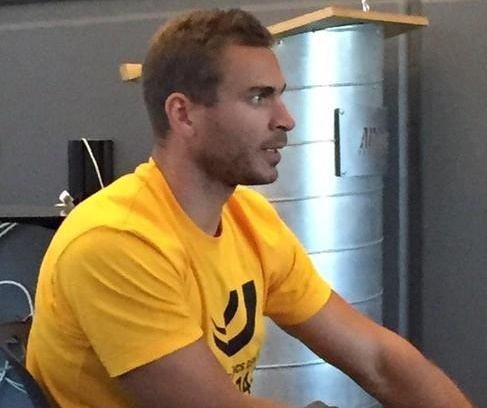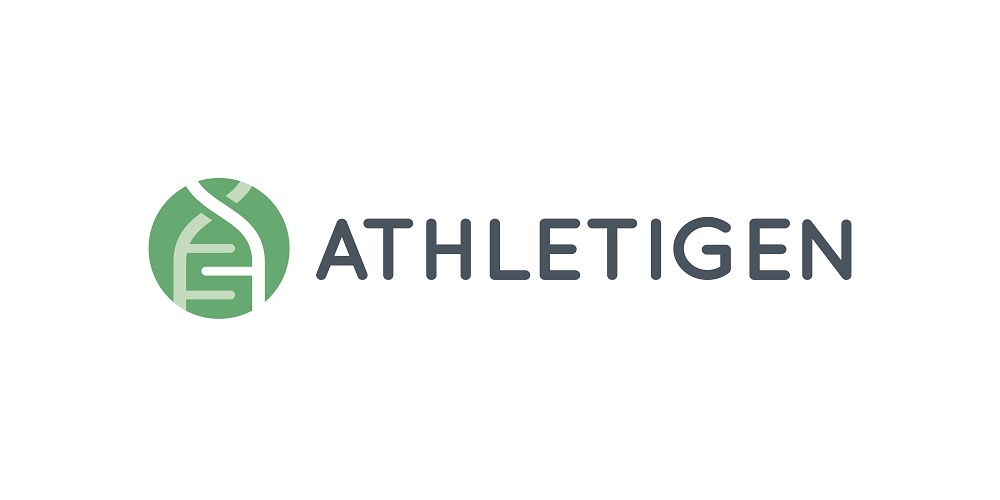Following on the heels of another excellent Apprentice Coach Program (hopefully you followed along on our Twitter feed for live tweets throughout the week) we are very excited to soon be welcoming Dr Jeremy Koenig – CEO of sports genetics company Athletigen – to Altis.
Interest in sports genetics has soared in the last couple of years (most probably due to David Epstein’s great book – The Sports Gene) and a number of companies are now offering genetic profiling for athletes, coaches, and other parties who are interested in sports-related genetic traits.
This developing field can potentially offer much support to coaches, for if we can gain a greater understanding of athletes’ genetic potentials; how we can use this information to help guide our programming and therapy; and the role that epigenetics can play in athletic development, we are sure to make better coaching decisions.
We sat down with Dr Koenig to find out more on sports genetics, Athletigen, and find out more about what our staff and athletes will be learning during his upcoming visit:
Q: What does Athletigen do?
A: Athletigen brings sports and genetics together in a way that’s never been done before. We have been working very hard to deliver sports genetics to coaches in a practical format that will provide novel insight in order to help them better understand their athletes. This means that we have manually curated thousands of the latest genetics research papers relevant to athletic performance. Further to this, we have built an administrative platform for coaches, health professionals and researchers to help them better manage their athletes.
Q: Can you tell me about your background and your motivation for starting Athletigen?
A: I’m an athlete, a coach and a scientist. I completed my PhD in Biochemistry and Molecular Biology and followed that up with Postdoctoral training in genetics at Cornell University. From there I became a professor in nutrigenomics, and then moved to the biomedical industry to work on developing and commercializing a genetic screen for fertility. In addition to my science background, I also have more than 10-years of experience coaching professional athletes. I founded Athletigen in 2013 to combine my passion for sport performance with my formal training in genetics.
Q: How do our genes and / or genetics impact our performance?
A: We are all born with an individual genetic composition. Our height, shoe size, health risk, and even athleticism are all influenced by our genetic inheritance. Genes matter and there is no disputing this. How we interface with the natural environment greatly influences how we leverage what we know about our DNA. Indeed, there is no single “sports gene” for power or endurance, it’s a combination of many markers. For example, research shows that our ability to train VO2 Max is affected by a set of at least 21 different genetic markers. Similarly, there are different sets of markers associated with all performance trait categories i.e. power, endurance, metabolism, anaerobic capacity, recovery, injury protection, motivation. In addition, what we know about an athlete’s genetics in the context of their performance goals can greatly influence nutritional requirements. Athletigen works with coaches and athletes to deliver this information in a way that will help them discover how to reach performance goals faster, and keep performing longer.
Q: How can knowing about genetics alter my training approach?
A: Athletigen’s sports genetics profiles report on 100+ key factors for nutritional, training and therapeutic approaches that are unique to each athlete, and are required for optimized and sustained performance. For example, consider an athlete with the following genetic profile for gene markers: those associated with enhanced recovery; a risk of Achilles tendon rupture, and an increased risk for muscle cramping:
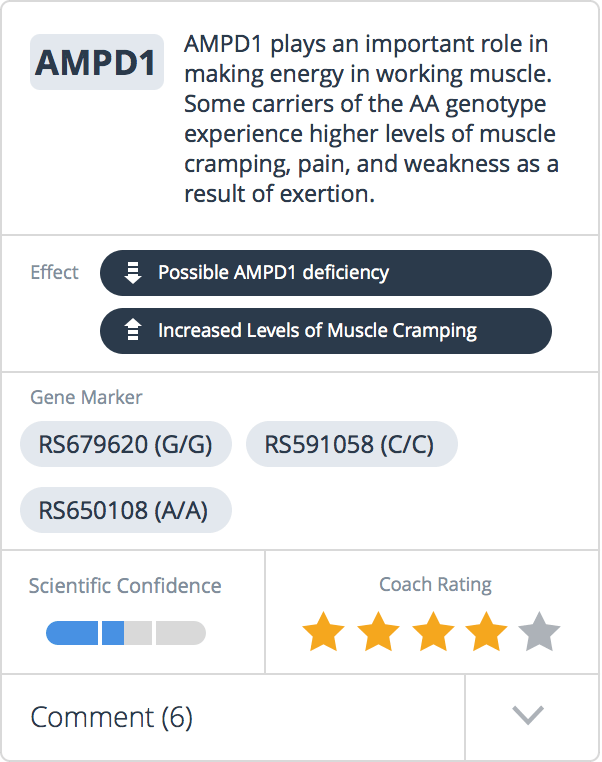
In this example we see that this athlete has a genetic profile in favor of muscle recovery, but he also has a high-risk of rupturing his Achilles tendon. It is important to know this because while the athlete may not complain of muscle soreness after competition, he is likely to incur gradual micro tearing in his Achilles tendons that is not repairing at the same rate as his muscle tissue. Knowing this information, the athlete can be proactive in managing tendon health. Specifically, tendon strengthening becomes a priority for this particular athlete and he should also consider consuming specific supplements to reduce inflammation and speed up tendon tissue regeneration. Given the athlete’s risk for injury, compliance with this program based on his genetics is likely to decrease the risk of Achilles tendon rupture as physical load increases into the competitive season.
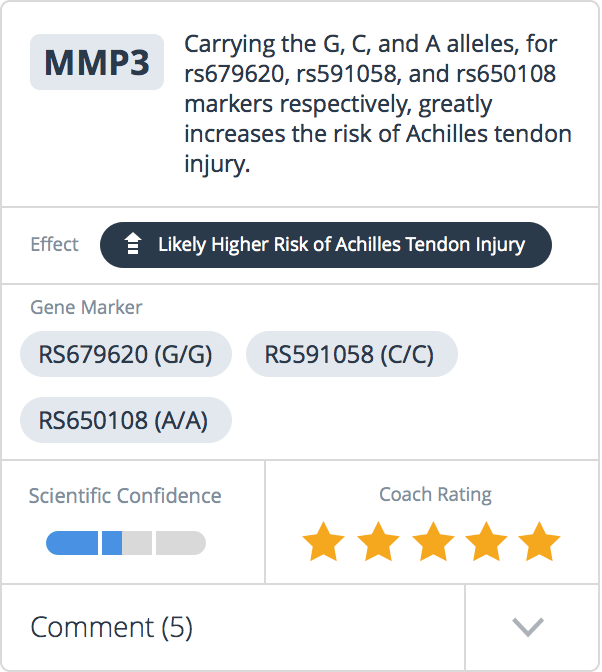
In addition, muscle cramping is quite common in athletes who compete for longer durations i.e. the length of a basketball game. While it is true that cramping can occur as a result of dehydration, some athletes have a genetic predisposition that makes them more likely to experience this – not because of dehydration, but due to differences in how their bodies metabolize sugar. In this example, the athlete has a gene variant of AMPD1, which makes him susceptible to cramping. Supplementing with D-ribose sugar in this instance will offset this risk of cramping during competition.
Q: What is Athletigen’s relationship with Altis?
A: I was track and field athlete in college and I still train semi-regularly. I participated in a training camp at Altis in May 2014 and fell in love with the concept: “Altis has created for the first time – a professional environment and approach to Track and Field.” The performance training process has always captivated me and to see it being executed so well at Altis, I felt compelled to get involved. In November 2014 I participated in the Apprentice Coach Program and presented on sports genetics. During this program, and with professional insight from some of the most outstanding practitioners in the World, I was able to identify a practical application for sports genetics for coaches. Specifically, with Altis, Athletigen has been working to build a resource that allows coaches to honor the individual needs of athletes as they train toward their goals.
Q: What will our coaches be learning about?
A: Through participation in Athletigen’s Sports Genetics Training Course, Altis coaches can expect to gain the following insights:
– How to take genetic information into account when training athletes
– Genetic information is complex; the course will aim to simplify this for coaches
– Coaches will also be provided with the knowledge they need to fully take advantage of their athlete’s genetic potential as it relates to their performance needs.
In addition, as part of this course, coaches will have the opportunity to analyze their own DNA, and therefore discover how sports genetics applies to their own bodies in order to gain a personal appreciation for this resource.
Q: What’s in the works for the near future? What are the long-term goals?
A: We are always looking for objective insight from our coaches and health professionals to ensure that Athletigen is providing a world-class sports genetics resource. For this reason, we continue to work closely with coaches who participate in Athletigen’s Sports Genetics Training program at Altis in order to develop software applications that are specific to their coaching needs. Further to this, we are actively involved in sports genetics research with a number of academic institutions, and we encourage our coaches to participate in order to discover new aspects related to sports genetics.
Thanks Dr Koenig – we look forward to your visit next month!
